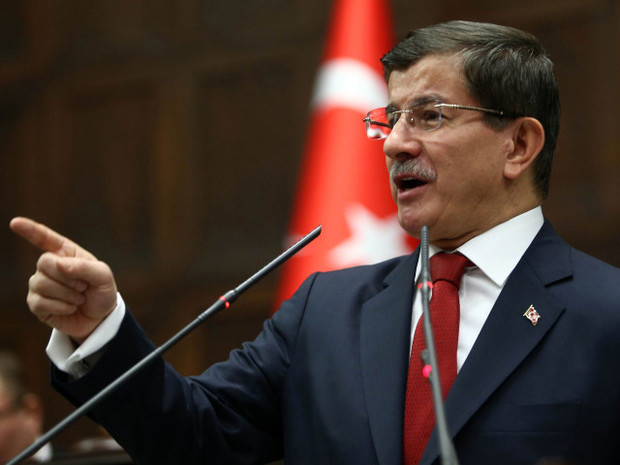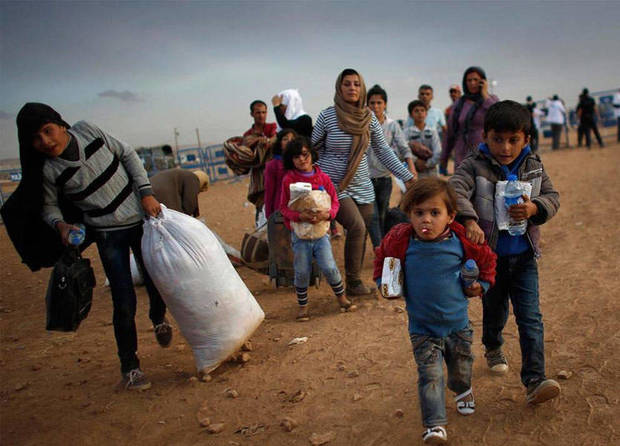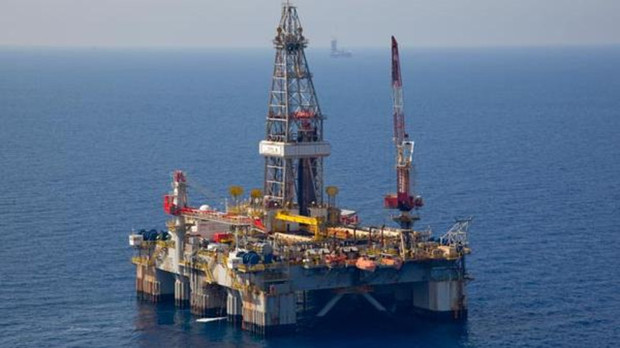Gumer Isaev: ‘The Turkish government will make amendments to the Syrian strategy for economic reasons’
Turkish thaw: economy versus geopolitics
A long-awaited apology of Ankara to Moscow for the downed Russian bomber aircraft was a hope for a resumption of the Russia-Turkey relations. In Gumer Isaev's opinion, who heads the St. Petersburg Centre for Middle East Studies and is the director of the Russian Research Institute (Istanbul), Erdogan came into conflict with Putin deliberately. What made the Turkish elite unexpectedly accommodate to Russia? What advantages is Ankara trying to capitalise on the 'thaw'? The famous political expert tells about it in a column that was specially written for Realnoe Vremya.
'Turkey deliberately came into conflict'
The Russia-Turkey relations experienced one of the most dramatic episodes in the contemporary history from 2015 to 2016. The incident of the downed jet near the Syria-Turkey border was a reflection of a significant contradiction between Russia and Turkey on Syria.
Despite a boost in the economic relations that affected the annual increase of commodity turnover between the countries, Russia and Turkey had enough political contradictions in different directions – from Cyprus to the South Caucasus. But it seemed the difference in the approaches to the future of Syria would not worsen the bilateral relations, while both countries were taking advantage of trade. However, the more the Syrian wool tangled, the more difficult it was to maintain normal relations.
As a result, geopolitics dominated economy – Turkey deliberately came into conflict with Russia because of Syria and seemed to be ready to forget about the economic benefit.

To start with, we will try to briefly mark the key elements of the Turkish policy in the region.
Turkey as well as Russia aspired to obtain a status of the regional leader after the economic growth in the 2000s. If Russia needed to retain its political and economic influence in the post-Soviet space, Turkey was interested in its former territories of the Ottoman Empire. The successful economic development of Turkey in the first years of the ruling of the Justice and Development Party in combination with a 'soft power' enabled the country to establish mutually beneficial relationships with its neighbours and cement its position in the region. However, it overestimated its own possibilities. Davutoglu's words that even a loaf won't fall from a tree in Near East behind Turkey's back did not withstand the test of Arab Spring.
An 'F' for the Syrian exam
The Civil war that began in Syria became almost the major international event for Turkey in the latest 10 years. Turkish strategists supposed the fall of the Asad regime was inevitable and they should stake on the victory of rioters in Syria. But the stakes did not live up to the expectations, and, as a result, the Syrian crisis made Ankara face several significant problems, not cement Turkey's positions in the Near East.
Firstly, Syrian refugees. When the first refugees crossed the Turkey-Syria border in order to wait out the war, only a handful of people could imagine they would have to stay there for long and their number would increase to 2m people. So, the flow of the refugees to Europe became one of the reasons for the tense relations between Turkey and the EU.

'When the first refugees crossed the Turkey-Syria border to wait out the war, a handful of people could imagine they would have to stay there for long and their number would increase 2m people.' Photo: aljoumhouria.com
Terrorist organisations that appeared in the height of the war in Syria became another problem. Turkish special services were criticised many times for the support of different anti-Asad groups in Syria, including the radicals. As for the implication of Turkish special services in the creation of ISIS (Editor's Note: the organisation is banned in Russia), there are arguments. But the fact that the forces who were just recently supported by Turkey joined the radical group cannot be denied. In 2015-2016, the ISIS fighters organised several loud terrorist attacks in Turkey and significantly worsen the image of the country as a safe state for tourism and business. Having become a major problem for Turkey, ISIS favoured the aggravation of the hot-button issue of Turkey-Kurd relations. When Kurdish city of Kobani was attacked by ISIS, the Kurds accused Turkey of its inactivity – the west of Turkey became a killing field between Kurdish groups and governmental forces once again. The support of the Kurdish people by the USA resulted in tense relations between Ankara and Washington.
Failure of Neo-Ottomanism
The downed Russian jet was one of the latest negative consequences of the Syrian war. Today there are many versions that explain the actions of the Turkish government, from the point of view of national and foreign policy. It is obvious Turkey was completely dissatisfied with the Russian presence in Syria. But Ankara did not make up nothing else but demonstratively shot down the Russian Su-24.
By the middle of 2016, Turkey turned out in a complicated international position. The successful policy of 'zero problems with neighbours' in the old days sank into oblivion together with Neo-Ottomanism as a strategy of soft power. Not too bad relations with some countries in the East and West, visits of the first people of Turkey to African and Asian countries – nothing managed to compensate the crisis relations with the West and Russia.

'Israel stated many times that gas from Leviathan Field will go towards Turkey – is it a reason to resume the relations?' Photo: alarabiya.net
International thaw
What happened at the end of June 2016 to the Turkish foreign policy can be called thaw. Turkey came to an agreement with two states at once – Israel and Russia. Formally the conciliation bumped up against a necessity to accept apologies in one case and make them in another. But these steps required the approval of the Turkish electorate, especially speaking about Israel because in 2010 the Israeli commandos killed several Turkish peacemakers during the attack on the humanitarian convoy of Mavi Marmara. Since then the Turkish mass media has been heavily criticising Israel. According to the results of the agreements, Israel promised to pay compensations to the killed people and allowed to deliver the humanitarian aid to Gaza. Although Netanyahu stated about the preservation of the blockage of Gaza, the Turkish saw the agreement with Israel as Turkey's win. But it seems the reasons for the normalisation of the relations with Israel are found in the economy. Israel stated many times that gas from Leviathan Field will go towards Turkey – is not it a reason to resume the relations? However, according to the statistics, the commodity between the two countries in 2014-2015 did not fall, in spite of angry declamations of Erdogan. Now, after the salvation of Gaza, it will only increase…
The normalisation of the Russia-Turkey relations is taking place even faster than their freeze. Erdogan's apologies and the following cancellation of the bans on charter flights in the short run demonstrate what Turkey asked Russia. The question of what Turkey asked instead of it remains open… In my opinion, the economic factor played a major role in Erdogan's apologies. No one excludes that we will hear about Turkish Stream and several other expensive projects soon.
So, the Turkish thaw is nothing but a return to the priority of the economy. Geopolitics took a back seat. The Syrian issue together with its compositions will have a serious impact on Turkey. But Turkish government is expected to make amendments to its Syrian strategy for economic reasons.